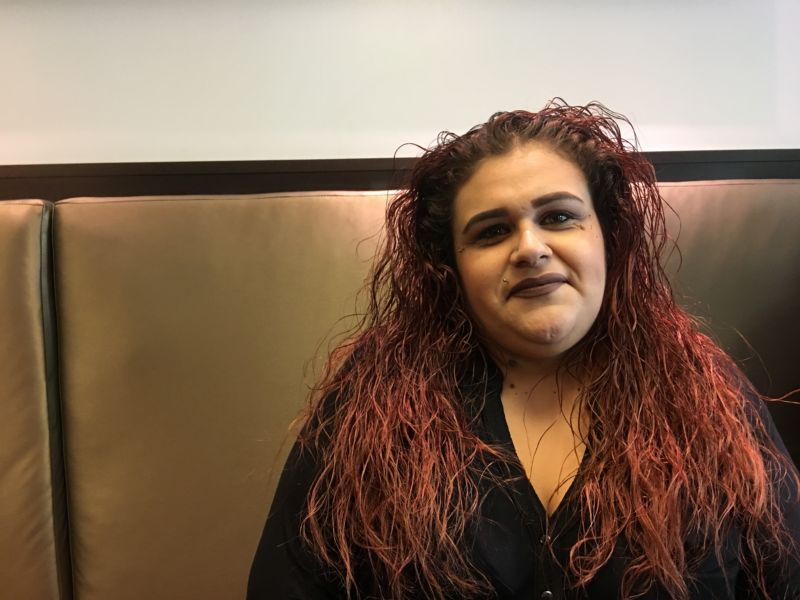
STOCKTON, Calif.—Last year, a retired Stockton police sergeant named Gabe Herrera was looking into the sale of unlicensed food. Working as an undercover investigator (“Robert Paine”) for the San Joaquin County District Attorney, Herrera joined a Facebook group called “209 Food Spot.” (209 refers to the area code in this part of central California.)
In early 2015, the San Joaquin County Environmental Health Department had received complaints about unlicensed food being sold on 209 Food Spot. One person even said they got sick as a result. So, the EHD, as a responsible county agency, decided to investigate.
Unlike an unlicensed taco stand or another unlicensed food business that operates on the street and can easily be shut down, getting ahold of 209 Food Spot was trickier. Nearly everyone was cooking and selling from their own homes. The EHD contacted multiple sellers directly, warning them that they did not have adequate permits. But these warnings had little, if any, effect on the Facebook group. The EHD stepped up its game by sending letters to some of the sellers. Those warnings were ignored, too.
By December 2015, Sgt. Herrera decided to go after six different women, chosen at random from 209 Food Spot. One of those women was Mariza Ruelas, a 37-year-old single mother of six children. Posing as Paine, Herrera went to Ruelas’ house, handed over $12, and walked away with 32oz of ceviche. (He did not respond to Ars’ request for comment.)
Six months later, in June 2016, Ruelas and five other women received a court summons for their arraignment to face state-level misdemeanor criminal charges for operating a food facility without a valid permit and engaging in business without a permit to sell. None of them were amongst those who had received prior warnings from the EHD.
The other five women were offered plea deals of a year of probation, 40 hours of community service, and $250 in fines. They immediately accepted. Ruelas, by contrast, was initially offered three years probation and 80 hours of community service. She was the only one who requested a lawyer and was provided a public defender.
“I asked for representation because I felt that the punishment was a little harsh for the crime in question,” she told Ars over coffee following her November 17 hearing in county court.
Not long after, the prosecutor then tacked on two additional counts: an alleged health and safety violation and an alleged tax violation. According to court filings, by late July 2016, Ruelas had even moved to a new, secret Facebook group called “Taste of 209,” where she and others continued to sell food.
“It would be negligent for our office to ignore it,” Supervising Deputy District Attorney Robert Himelblau said during a November 9 press conference in Stockton. “We did not send anybody out there to go hunt people down. We are not trying to prevent people from cooking or sharing or potlucks or anything like that.”
In a press release, the DA’s office noted that the “Centers for Disease Control and Prevention reported that 48 million persons get sick, 128,000 are hospitalized, and 3,000 die from foodborne infection and illness in the US each year.”
Ruelas has been assigned a December 2 trial date, and she faces additional charges for allegedly thwarting the law. Ruelas could face a maximum penalty of two years in prison, but District Attorney Kelly McDaniel has repeatedly said she is not seeking jail time. (According to the FBI, Stockton, a city of about 300,000 people approximately 80 miles east of San Francisco, has one of the highest rates of violent crime in California.)
During the November 17 hearing, McDaniel told the court that her office had recently received and executed a search warrant for the contents of Ruelas’ Facebook account and messages she left on 209 Food Spot and other related groups. The social network recently coughed up over 72,000 pages of Ruelas’ Facebook records. The DA has since shared them with Benjamin Hall, Ruelas’ public defender, as part of the discovery process. Hall said he has had scant time to review them.
Crime and punishment
Since 2013, California has had a “cottage food” law, which formalizes the sale of some approved baked products, including breads, cookies, pastas, confections, and other items, to be sold locally (ceviche, which is made from raw fish that has been cured instead of cooked, is one of many items not on the approved list). After passing a short training, home cooks are allowed to sell.
David LeBeouf, a Stockton lawyer who has been involved in numerous food-related legal cases but is not representing Ruelas, said he had never heard of a case quite like this one.
“This to me is the biggest waste of time and the people's energy,” he told Ars. “Tell her not to, and if she still does it and still does it after maybe the third time, then slap her hand.”
He wondered how the law should treat ad hoc community food sales.
“It’s like when schools or churches have a drive with tri-tip dinners, do they have to get permits or licenses? It happens once or twice a year, and they are clearly selling food on a small-time basis. How do you differentiate?”
LeBeouf said if citizens want to buy unlicensed food off of Facebook, they should accept the risk.
"Come on, man, leave the woman alone," he said.
Since Ruelas lawyered up, McDaniel has since reduced the plea deal so that Ruelas would only have to do 80 hours of community service as part of a “plea in abeyance.” That arrangement would dismiss all her charges and sentencing as long as she does not break the law for a year after completing her community service. Ruelas would not have a criminal record at all.
“We’re not throwing the book at her, we’re not throwing her in jail,” McDaniel told Ars, noting that as a prosecutor she could seek thousands of dollars in fines and at least a year of jail time.
But Ruelas has refused to go along with this. She argued that, while she and the other women on the Facebook group did take small amounts of money for their food, they weren’t actually doing much more than covering their costs.
“Trying to run a business is not something we were doing,” Ruelas said, explaining that others were selling phở, lumpia, barbeque, cheesecake, and other items.
She explained that oftentimes she would make large dinners for her family. Sometimes, she would sell the leftovers, which were often Latin American dishes like pozole and ceviche. By her own estimation, she was only selling a few times per month.
“They got to eat, and I got my money back for what I put into it. A lot of times I would post stuff and no one would comment,” she explained, meaning it wouldn’t sell.
Your tax dollars at work

“I was willing to do community service, and the fine, but the misdemeanor, no, I didn't want that on my record,” she said.
So Ruelas is continuing to fight. She maintains that she did not actually violate the law.
Meanwhile, the prosecutor doesn’t seem to be backing down anytime sooner, citing the rise of unlicensed food sales online.
“It’s becoming a big issue, that’s why Environmental Health decided to go after it,” McDaniel said, explaining that if someone did get sick or even died as a result, county health inspectors would be considered derelict in their duty to protect the public.
“They saw this growing, and their interest is always the public’s health and safety. When they see this volume of sales going on, and this risk to the community they feel they have to do something. This Facebook group was growing exponentially very quickly.”
Speaking to Ars by phone on Thursday, McDaniel seemed baffled that Ruelas had not simply accepted the plea deal—a deal that she still could accept all the way up until the trial.
“Our interest is to resolve these cases. Trials are expensive. We feel that we have given a really reasonable offer in this case,” McDaniel said. “A plea in abeyance is the best deal you can get around here, except for a dismissal. It’s a pretty good deal!”
Ruelas, for her part, said that she's no longer selling, but still loves to cook. “I’m not going to stop sharing my food with people that love it," she said.
Ruelas’ next court date, set for November 23, is the final hearing prior to her December 2 trial.
reader comments
328